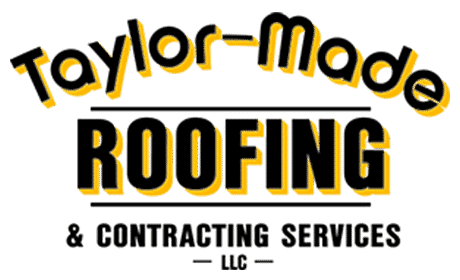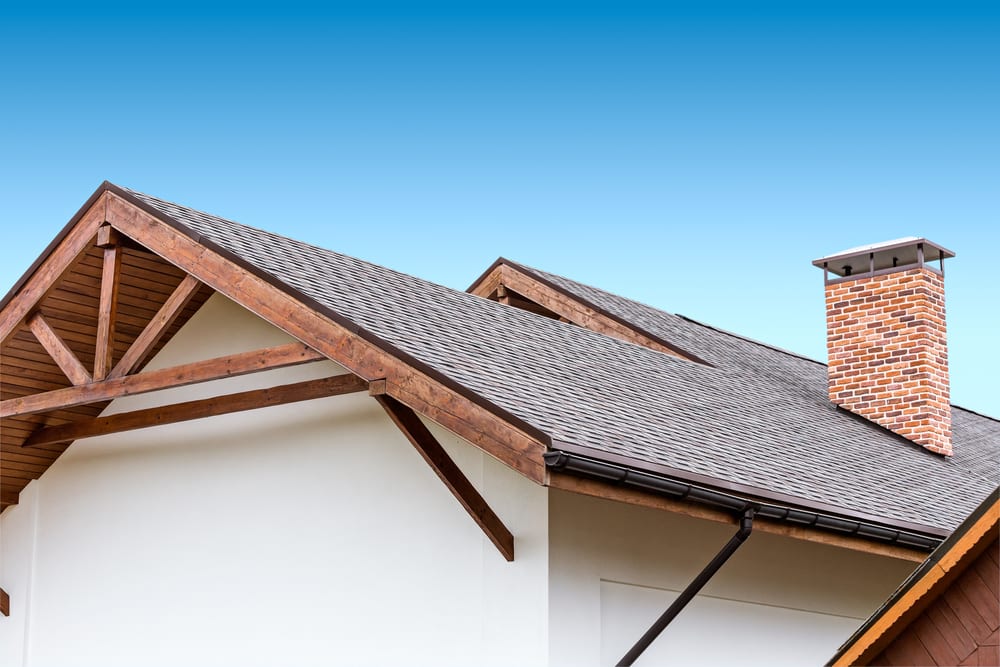Think back to elementary school. Did you ever draw a family portrait? Chances are, you drew your family in front of your childhood home – complete with a door, a few windows, and a triangle for the roof. Nostalgic childhood drawings aside, modern roofs are a lot more complicated than a simple triangle. It all comes down to roof pitch: the measurement of your roof’s overall steepness. Roof pitch is one of the key elements of a safe, functional roof – but what is roof pitch exactly, and how is it calculated?
What Is Roof Pitch?
How Do Roofers Measure Pitch?
Roofers measure roof pitch in one of two ways. First, roofers will typically measure from the top of the roof. That usually involves marking a level at 12″ and measuring the distance from the level to the roof’s surface. This method may not work if a roof has several layers of shingles, which can obscure the roof’s actual pitch. In that case, roofers may employ a second method: measuring from the bottom of the rafters. This accurate method involves measuring from the underside of a rafter on an overhang at the bottom of the roof; the underside of the rafter in the attic; and, finally, the underside of a barge rafter on the roof’s gable end.
We don’t recommend trying to measure your roof’s pitch yourself, but this information may help you understand a roofer’s conclusions when it comes to your home or business.
What Are the Different Types of Pitch?
You’ve probably realized by now that not all roof pitches are created equal. There are several types of roof pitch:
- Flat Roofs: Contrary to popular belief, “flat” roofs aren’t actually completely flat. In reality, all roofs need a small slope for water runoff. Roofs that are classified as “flat” typically have a very slight pitch between 1/2:12 and 2:12. In percentage terms, that’s 4.2 percent to 16.7 percent.
- Low-Pitched Roofs: Low-pitched roofs have a slightly steeper pitch than flat roofs, but their pitch is still below 4:12, or 33.3 percent. Like flat roofs, low-pitched roofs can be hard to maintain as they tend to promote water and debris collection. If your building has a flat or low-pitched roof, be sure to ask your roofer about using special materials to prevent leaks and water damage.
- Conventional Roofs: Conventional roofs are safe to walk on and easy to construct. They typically have a pitch ranging from 4:12 to 9:12, or 33.3 to 75 percent.
- High-Pitched Roofs: High-pitched roofs have a pitch that can be as high as 21:12, or 175 percent. These roofs have very distinct aesthetics, but they do often require additional fasteners to ensure safety and functionality.
What Is Standard Roof Pitch?
Short answer: There isn’t one. There really is no standard or universal roof pitch. Instead, your roofer will select a roof pitch based on factors like your climate, personal style, level of maintenance, and available materials. Roof pitches can also vary by country. For example, houses in Great Britain typically have a pitch between 40 and 50 degrees, while houses in Italy have slightly less pitched roofs, between 16 and 25 degrees (source).
_____
So, what is roof pitch? Put simply, it’s the level of steepness in a roof. Roof pitch informs every step of the roofing process, from materials to application. If you’re not sure which pitch is right for you, talk to your roofing professional.
If you live in southwest Missouri, contact Taylor-Made Roofing for help with your roofing needs. Our experts can help you explore new roofing options, maintain an older roof, perform emergency repairs, complete tear-offs and recovers, and perform remodeling services. With over 20 years of experience in residential and commercial roofing, Taylor-Made Roofing is a company that you can trust with all of your roofing needs. Our family-owned business offers quality services, a reassuring warranty, and free estimates. For more information regarding roofing options, please give us a call at 417-326-8778 or contact us online. We look forward to hearing from you!

